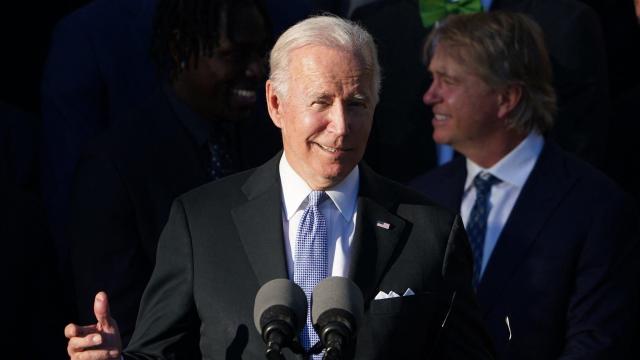President Joe Biden has renewed a ban on U.S. investment into any Chinese companies with alleged ties to China’s military during an announcement on Tuesday. Biden specifically called out the use of “Chinese surveillance technology” which poses a threat to human rights around the world.
The investment ban, first enacted by President Donald Trump through an Executive Order in November of 2020, blacklists 59 companies, including technology giant Huawei, which has ties to China’s People’s Liberation Army. Though arguably Huawei doesn’t have ties to the Chinese military much deeper than the ties many Silicon Valley firms already have with the Pentagon.
And while President Biden didn’t specifically mention the oppression of the Uighurs in Xinjiang, who are currently living under a regime of near-constant surveillance, the Muslim-majority group has been a common cause for Western democracies in recent years.
“The [People’s Republic of China] is increasingly exploiting United States capital to resource and to enable the development and modernisation of its military, intelligence, and other security apparatuses, which continues to allow the PRC to directly threaten the United States homeland and United States forces overseas,” Biden said in an open letter to House Speaker Nancy Pelosi that was published on the White House website.
“Through the national strategy of Military-Civil Fusion, the PRC increases the size of the country’s military-industrial complex by compelling civilian Chinese companies to support its military and intelligence activities,” the letter continues. “Those companies, though remaining ostensibly private and civilian, directly support the PRC’s military, intelligence, and security apparatuses.”
“At the same time, those companies raise capital by selling securities to United States investors that trade on public exchanges both here and abroad, lobbying United States index providers and funds to include these securities in market offerings, and engaging in other acts to ensure access to United States capital,” the letter says.
And while it’s probably practical that American interests try to wall off investments in Chinese firms for national security purposes, China isn’t really doing anything that the U.S. wasn’t already doing. All you need to do is remember that the late Steve Jobs had a Top Secret security clearance necessary for his companies to sell products to the National Security Agency.
New Cold War, much like the one before.
Editor’s Note: Release dates within this article are based in the U.S., but will be updated with local Australian dates as soon as we know more.
